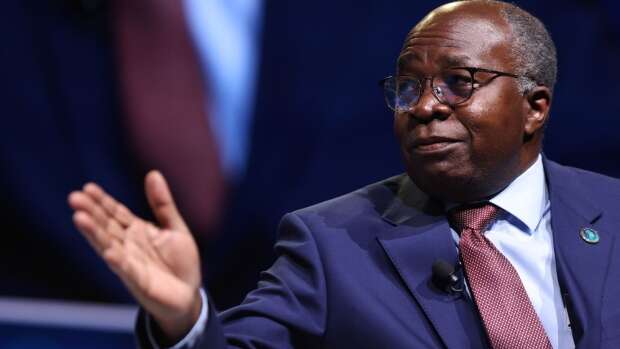Zambia seeks $900 million as drought set to halve growth
Zambia needs about $900 million this year to deal with its worst drought on record in parts of the country that’s wiped out crops and is set to cut economic growth by more than half, Finance Minister Situmbeko Musokotwane said.
The nation that’s normally a food exporter of corn, a staple, will harvest about two-thirds less of the crop this year than it did in 2023, he said in an interview Tuesday in Washington. President Hakainde Hichilema made a formal appeal for emergency help later Tuesday.
Zambia — Africa’s second-biggest copper producer — also faces a severe power shortfall as hydroelectric dam levels plunge, threatening mining output.
While the government is realigning its 2024 budget, with drastic spending cuts, it will have to seek additional funds from bilateral donors, as well as the International Monetary Fund and World Bank, to cover a financing shortfall and save lives, according to Musokotwane. The drought will probably cut economic growth to 2.5% this year from a revised 5.2% in 2023, he said.
“Priority number one under those circumstances is to prevent people dying out of hunger,” he said. “We don’t like begging, but the choice is between stopping to beg and people dying. So under the circumstances, I’m afraid we have to beg.”
The El Niño-induced drought was the driest parts of the country faced in more than 100 years of records and is an indicator of how severely Africa is being impacted by extreme weather events that scientists say are becoming increasingly frequent and severe because of climate change — even though it produces far less global-warming gases than developed regions.
The dry spell has left 6.6 million Zambians in need of urgent humanitarian assistance, Hichilema said in a televised speech, adding that he made the appeal for international aid “with a heavy heart.” He’d already declared a national disaster and emergency Feb. 29.
The $900 million that Zambia needs will go to food stocks, helping farmers replant next year, and energy supplies in the country that relies on hydropower for about 85% of its electricity generation, Musokotwane said.
The nation’s mining industry accounts for about half of power demand, while generating more than 70% of foreign-exchange earnings. Because of its importance, the government is prioritizing electricity supplies to copper producers. Still, it comes as a blow to the country’s ambitions to increase output of the metal that’s key to the energy transition.
“We need that expansion from the copper industry, we need it desperately,” said Musokotwane.








